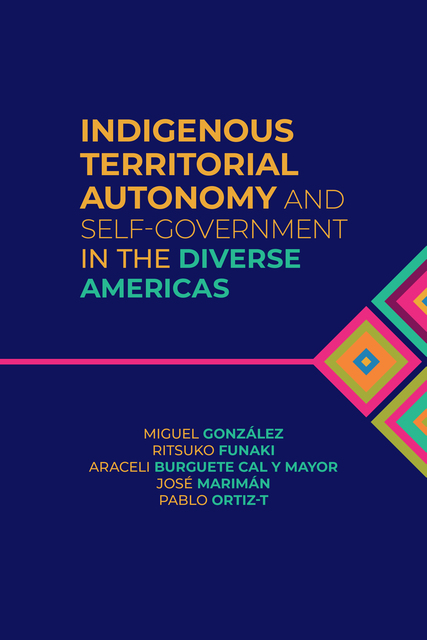Indigenous Territorial Autonomy and Self-Government in the Diverse Americas
An essential work on autonomy and self-governance for scholars of Indigenous politics, Indigenous rights in the Americas, constitutional law, and multicultural citizenship regimes.
Across the Americas, Indigenous and Afro-descendent peoples have demanded autonomy, self-determination, and self-governance. By exerting their collective rights, they have engaged with domestic and international standards on the rights of Indigenous Peoples, implemented full-fledged mechanisms for autonomous governance, and promoted political and constitutional reform aimed at expanding understandings of multicultural citizenship and the plurinational state. Yet these achievements come in conflict with national governments’ adoption of neoliberal economic and neo-extractive policies which advance their interests over those of Indigenous communities.
Available for the first time in English, Indigenous Territorial Autonomy and Self-Government in the Diverse Americas explores current and historical struggles for autonomy within ancestral territories, experiences of self-governance in operation, and presents an overview of achievements, challenges, and threats across three decades. Case studies across Bolivia, Chile, Nicaragua, Peru, Colombia, Mexico, Panama, Ecuador, and Canada provide a detailed discussion of autonomy and self-governance in development and in practice.
Paying special attention to the role of Indigenous peoples’ organizations and activism in pursuing sociopolitical transformation, securing rights, and confronting multiple dynamics of dispossession, this book engages with current debates on Indigenous politics, relationships with national governments and economies, and the multicultural and plurinational state. This book will spark critical reflection on political experience and further exploration of the possibilities of the self-determination of peoples through territorial autonomies.

Download as PDF
Single Resources
PDF PDF Chapter 21. Indigenous Governance Innovation in Canada and Latin America: Emerging Practices and Practical Challenges
PDF Chapter 20. Indigenous Self-Government Landscapes in Michoacán: Activism, Experiences, Paradoxes and Challenges
PDF Chapter 18. The Path to Autonomy for the Wampís Nation
PDF Chapter 17. Building Guaraní Charagua Iyambae Autonomy: New Autonomies and Hegemonies in the Plurinational State of Bolivia
PDF Chapter 16. Autonomy as an Assertive Practice and as a Defensive Strategy: Indigenous Shifts in Political Meanings in Response to Extreme Violence in Mexico
PDF Chapter 15
PDF Chapter 14. Indigenous Autonomy in Ecuador: Fundamentals, Loss and Challenges
PDF Chapter 13. Indigenous Jurisdiction as an Exercise of the Right to Self-determination and its Reception in the Chilean Criminal Justice System
PDF Chapter 12. The Thaki (Path) of Indigenous Autonomies in Bolivia: A View from the Territory of the Jatun Ayllu Yura of the Qhara Qhara Nation
Metadata
- isbn978-1-77385-463-2
- publisherUniversity of Calgary Press
- publisher placeCalgary, AB
- restrictionsCC-BY-ND 4.0
- rightsThis Open Access work is published under a creative commons licence.
- rights holderMiguel González et al

